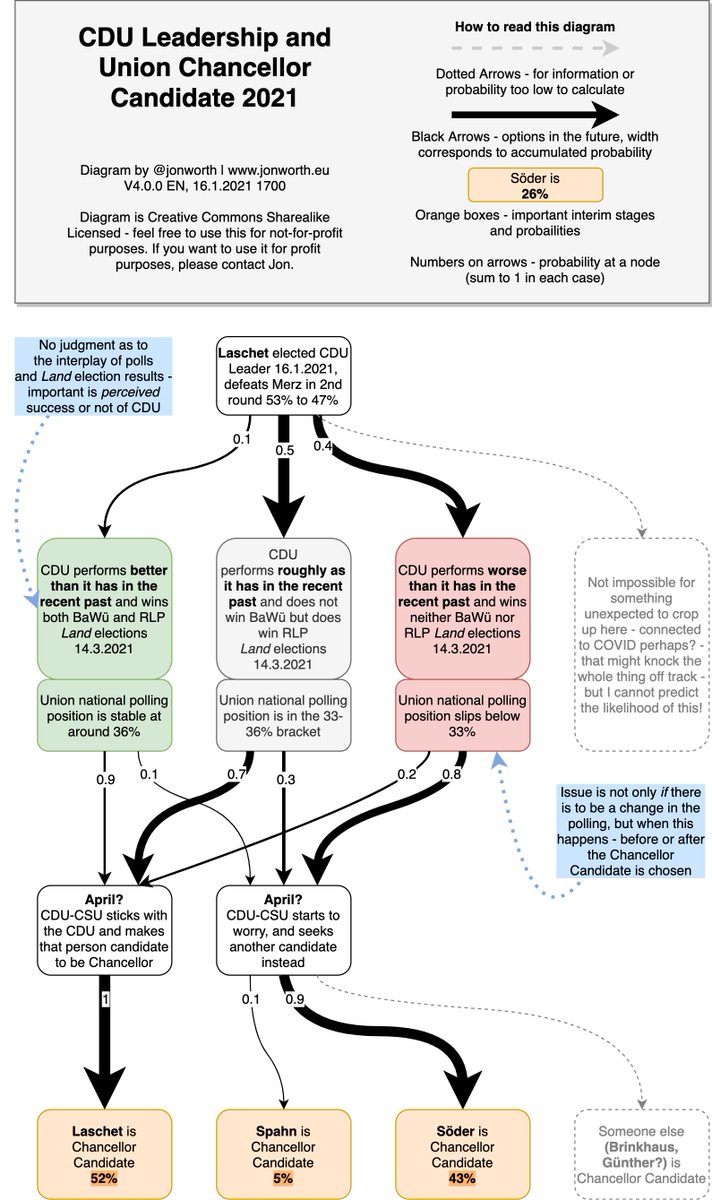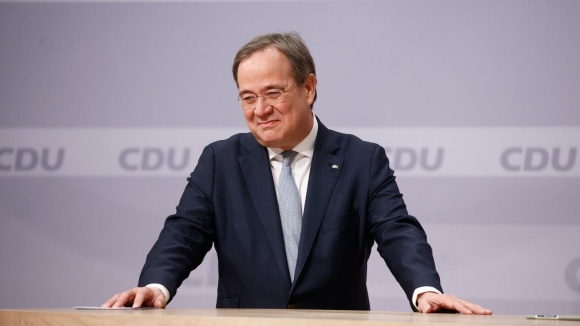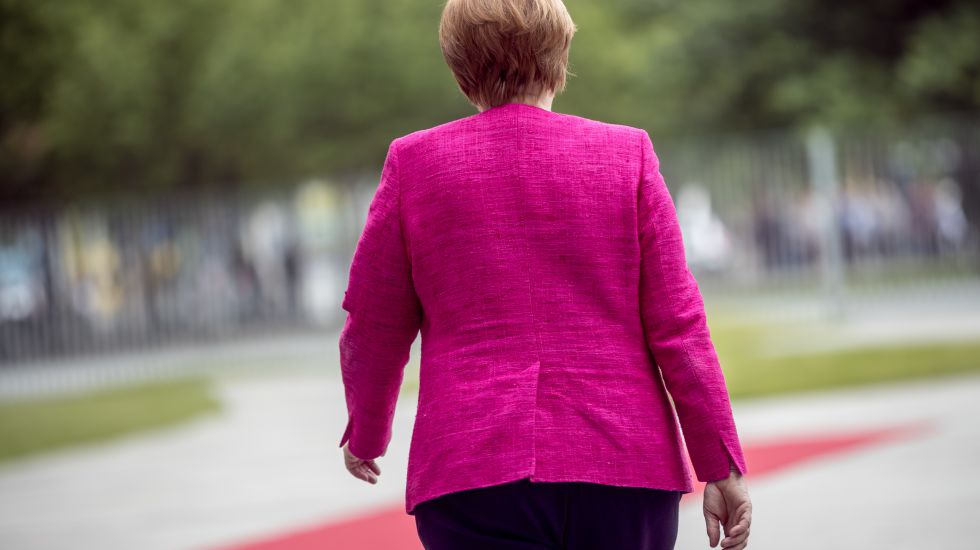
What's the biggest error in all the reporting about #CDUvorsitz?
People not understanding the process
This piece for example:
n-tv.de/politik/Norber…
1/10
People not understanding the process
This piece for example:
n-tv.de/politik/Norber…
1/10
The key line: "Zieht er [Röttgen] seine Kandidatur für den Vorsitz durch, steigen die Chancen auf einen Sieg von Friedrich Merz."
"If he [Röttgen] continues his candidacy for leader, the chances of a victory for Friedrich Merz increase."
2/10
"If he [Röttgen] continues his candidacy for leader, the chances of a victory for Friedrich Merz increase."
2/10
I'm pretty sure that's *not* right.
Why?
Because of the process
If Merz, Laschet and Röttgen were up against each other in a first past the post, 1 round election, it would be so. Merz would likely get +/- 40%, Röttgen and Laschet +/- 30% each, Merz would win
3/10
Why?
Because of the process
If Merz, Laschet and Röttgen were up against each other in a first past the post, 1 round election, it would be so. Merz would likely get +/- 40%, Röttgen and Laschet +/- 30% each, Merz would win
3/10
But that's not how the process works
In the first round, the three candidates are up against each other, *but if none of them gets 50%, the top 2 go into a run-off* - "Stichwahl" in German
4/10
In the first round, the three candidates are up against each other, *but if none of them gets 50%, the top 2 go into a run-off* - "Stichwahl" in German
4/10
Example: say the result is Merz 40%, Laschet 32%, Röttgen 28% - means Röttgen drops out, and in the run-off Merz would face Laschet
The decisive question then becomes: those who backed Röttgen in round 1, who will they back in the run off?
5/10
The decisive question then becomes: those who backed Röttgen in round 1, who will they back in the run off?
5/10
And as both Laschet and Röttgen are centrists / pragmatists, we can assume more ex-Röttgen votes would go to Laschet than to Merz, and more ex-Laschet votes would go to Röttgen than to Merz
6/10
6/10
Is there anything else to suggest Röttgen would necessarily fare worse in a run-off against Merz than Laschet would?
No, not in my view. Party grandees fearful of Merz would likely swing behind Röttgen to stop Merz
7/10
No, not in my view. Party grandees fearful of Merz would likely swing behind Röttgen to stop Merz
7/10
Indeed it may indeed even be the opposite - Röttgen, with his stronger views on foreign policy, and firmer commitments on green issues - may even fare *better* than über-pragmatist Laschet would in a run off against Merz
8/10
8/10
There is of course the danger than Merz wins in the first round - with over 50% of the vote. But then whether he's up against 1 or 2 further candidates is 🤷♂️ - he'd have won anyway
9/10
9/10
So - because of the process - don't ask: "which of the three candidates is the most popular?"
Instead ask: "can either Laschet or Röttgen win a run off against Merz?"
And the answer is yes, either could. And there's no point either dropping out.
10/10
Instead ask: "can either Laschet or Röttgen win a run off against Merz?"
And the answer is yes, either could. And there's no point either dropping out.
10/10
• • •
Missing some Tweet in this thread? You can try to
force a refresh









